Date: Wednesday, 25 Oct 2023
Time: 6:00 p.m. to 8:00 p.m.
Location: B117 Wells Hall
Department: Canadian Studies Center
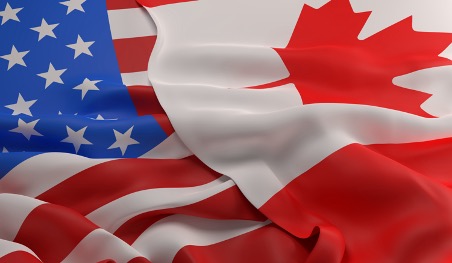
Celebrating Quebec and the French-language in Canada
Wednesday, March 19th, 6- 8 PM, in the International Center, room 303

Image Source: La Distributrice de Films
Join the Canadian Studies Center and the Department of Romance and Classical Studies for a screening of the French-language Canadian films Louis Riel ou le ciel touche la terre (dir. Meyer, 2024, 82 minutes) and Les mains sales (dir. Bellefleur-Kaltush & Marcotte, 2023, 17 minutes).
Les mains sales (dir. Bellefleur-Kaltush and Marcotte, 2023, 17 minutes)
In New France, an enslaved Indigenous woman serving a local surgeon endures a bleak, alienating life. Her encounter with a young girl she believes to be her child sparks a desire for radical action. (Source: IMDB)
Louis Riel ou le ciel touche la terre (dir. Meyer, 2024, 82 minutes)
In 1855, Louis Riel, leader of the Indigenous and European Metis, is sentenced to death for opposing the Canadian government. Through his diaries, we glimpse his legacy as a founding figure of Canada. (Source: La Distributrice de Films)
Both films will be shown in French with English subtitles.
Sponsored by the Canadian Studies Center and the Department of Romance and Classical Studies with support from the Province of Quebec.
 The Chorus of Jagged Little Pill
The Chorus of Jagged Little Pill
Photo by Evgenia Eliseeva from American Repertory Theater at Harvard University’s World-Premiere Production
This colloquium will present works in progress exploring the development of the 2019 Broadway musical Jagged Little Pill, including the collaboration between Canadian singer-songwriter Alanis Morissette and theater practitioners as, together, they used the songs from Morissette’s iconic 1995 album Jagged Little Pill to craft an original jukebox musical. At play in the musical are the intertwined affects of nostalgia and hope, felt acutely by those in Canada and beyond who came of age in the 1990s listening to Morissette’s music. As a musical adaptation, Jagged Little Pill appeals to the nostalgic fandom of the source material’s original audience while filtering that source material through a contemporary lens, and in so doing, invites the audience to cast a critical view on their memories of the past.
Friday, February 21, 1:30-3:00 PM
International Center Room 303
Presenters:
Laura MacDonald, Residential College in the Arts and Humanities, MSU
Michelle MacArthur, School of Dramatic Art, University of Windsor
Discussant:
Karen Fournier, Department of Music Theory, University of Michigan
Sponsored by the MSU Canadian Studies Center and the Residential College in the Arts and Humanities
For more information, visit
Join the MSU Canadian Studies Center as we unpack the ongoing debate over U.S.-Canada border security and tariffs.
Featuring:
Dr. Jason Miller, Eli Broad Professor of Supply Chain Management, MSU Broad College of Business
Dr. Stephen Brooks, Professor of Political Science, University of Windsor
Monday, February 24, from 12-1 pm (EST) via Zoom
A Collaborative Online International Learning (COIL) Initiative of the MSU Canadian Studies Center and the Center for Global Learning Innovation
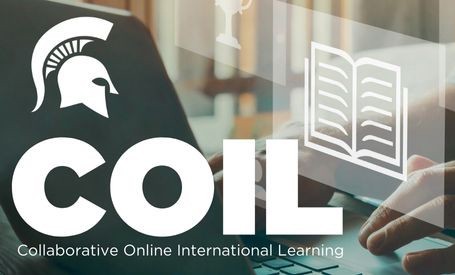
Collaborative Online International Learning (COIL) is an educational methodology that fosters online intercultural learning experiences among universities in different countries. As a pedagogical approach, COIL offers reciprocal exchanges for faculty and students, and it is identified as one of the pillars of the MSU Spartan Global Learning Initiative.
Introductory Webinar – 9-10 am (EST), January 24, 2025, via Zoom
Online Training – 9:30-12:30 pm (EST), February 7, 2025, via Zoom
As part of the training, participants receive:
For more information or to RSVP, please visit the Global Youth Advancement Network website or email the Canadian Studies Center at .
If you are an MSU faculty member interested in joining the MSU Canadian Studies Center as a core faculty member, please email us at .
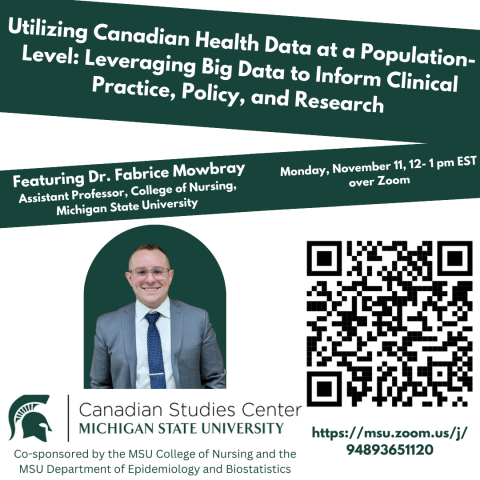
This presentation will provide a high-level overview of benefits and challenges of working with Canadian Health Data. This presentation will review commonly used data sources within Canada, along with considerations for data analysis and linkage. Using live case examples, this presentation will also highlight the key benefits of a social healthcare system for population-level analytics.
Dr. Fabrice Mowbray is an Assistant Professor and Director of the Data Center within the College of Nursing at Michigan State University. He received his Bachelor’s and Master’s of Science in Nursing (MScN) from the University of Windsor and a PhD in Health Research Methodology from McMaster University, Ontario, Canada. He also completed a doctoral fellowship in predictive analytics at the MacData Institute. Clinically, Fabrice has worked as a registered nurse in the emergency department and intensive care units at the Detroit Medical Center. He is a research methodologist currently working with GRADE to inform the conduct and reporting of prognostic (i.e., predictive) models and clinical decision rules. Fabrice currently lives in Windsor, Ontario, and continues to conduct research and trials in Canadian hospitals, with a primary focus on geriatric models of care in the emergency department and inpatient settings."
Part of the Fall 2024 Midwest Canadian Studies Network Webinar Series
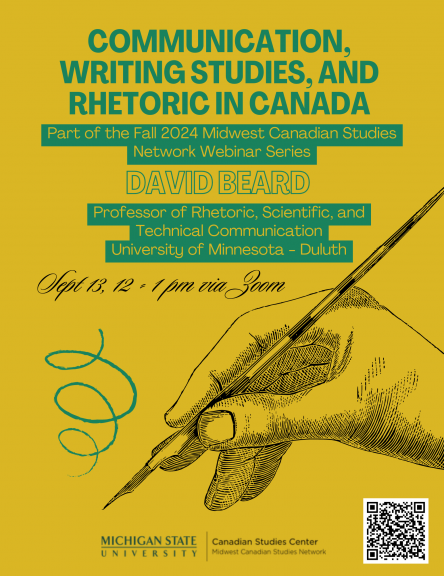
In this brief presentation, Dr. Beard will share his research on the history of rhetorical studies in Canada.
The presentation ends with an invitation to join RhetCanada and other scholarly societies at the Congress for the Humanities and Social Sciences.
David Beard is Professor of rhetoric in the Department of English, Linguistics, and Writing Studies at the University of Minnesota Duluth. He has published in journals like the International Journal of Listening, Archival Science, Philosophy and Rhetoric, Southern Journal of Communication, and Enculturation, among other venues. With Heather Graves, he co-edited The Rhetoric of Oil (Routledge). With John Heppen, he has published several articles and book chapters about professional wrestling.
For questions about the webinar or Midwest Canadian Studies Network, email Mitch Goldsmith at .
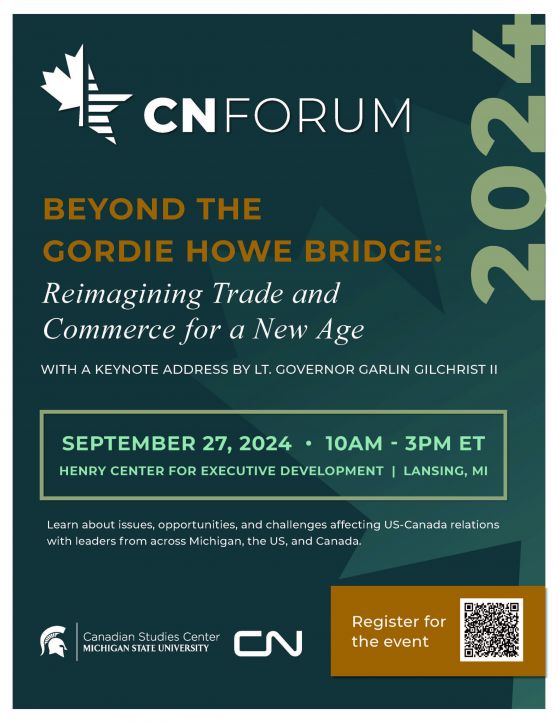
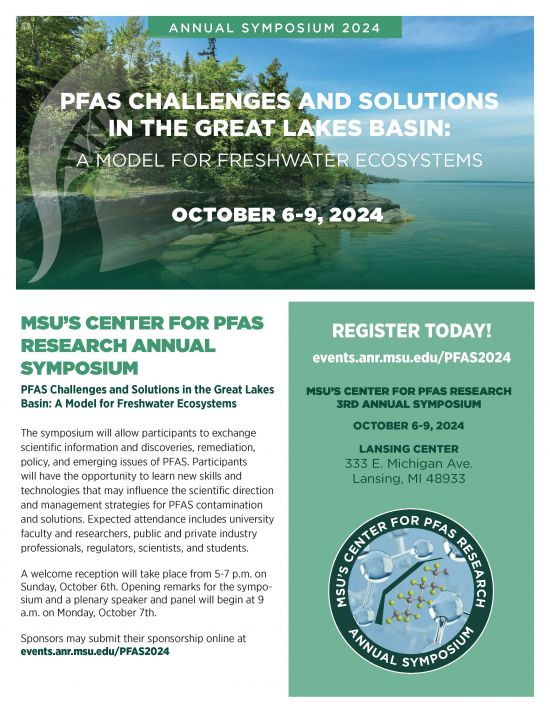
"Everything That Exists Naturally on Earth," an exhibition celebrating the rich tradition of Indigenous quiltmaking across Canada and the US, showcases quilts created by Indigenous artists, capturing the beauty of the natural world and the deep cultural significance embedded within their designs.
This exhibition is on view April 22 – August 4, 2024, at the Ziibiwing Center in Mt. Pleasant, Michigan.
For more information, please visit the MSU Museum's website.
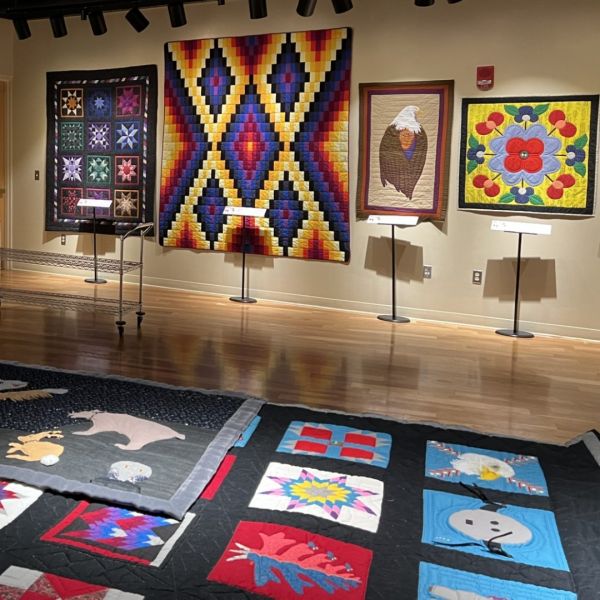
THE MSU RURAL COMPUTING CENTER AND THE QUELLO CENTER PRESENT:
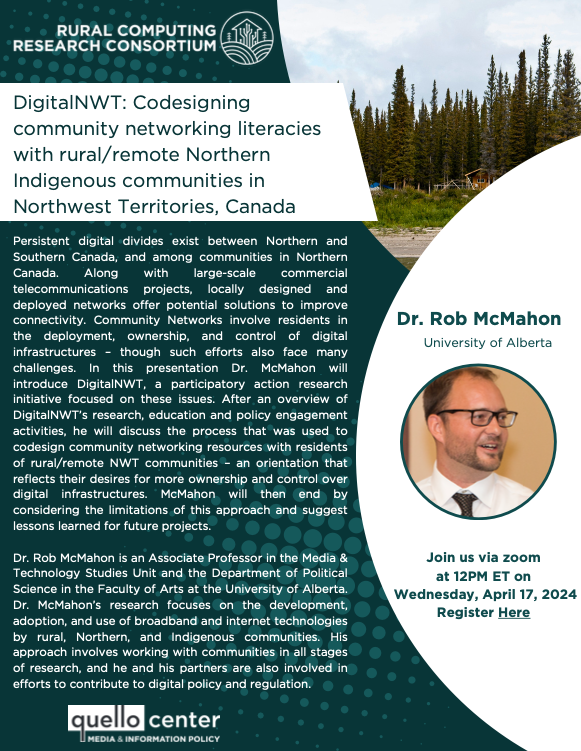
Date: Wednesday, 25 Oct 2023
Time: 6:00 p.m. to 8:00 p.m.
Location: B117 Wells Hall
Department: Canadian Studies Center

Event Details:
Please join in the free screening of the documentary film, "Design Canada", with question and answer sessions with film director and producer Greg Durrell.
The event is sponsored by the Canadian Studies Center as part of the 65th anniversary of Canadian Studies at MSU.
March 15th 2022 Part 3 of 3
The Michigan State University Center for PFAS Research and MSU’s Canada Connect invite you to the second webinar of a speaker series on the history, science, impact, and challenge of PFAS in the Canadian and US context. Using a One Health framework, each webinar will include speakers from both Canada and the United States.
Please click here to view the recorded webinar
The webinar will be March 15th from 12:00pm – 1:30pm. Please register to join.
Registration Link:
https://msu.zoom.us/webinar/register/WN_3KIbl8wKRDmwx9Wqnaob3Q
Speakers:
Magali Houde is a research scientist with Environment and Climate Change Canada and adjunct professor at the Université du Québec à Montréal and at McGill University. Her research advances the understanding of the fate of contaminants, including per/polyfluoroalkyl substances, in aquatic environments and their effects on organisms. She is actively involved in assessing trends of contaminants in Canadian Arctic marine mammals, important country foods for Indigenous peoples, as well as evaluating the influence of climate on contaminant exposure. Her work also focuses on outreach to Inuit communities and creating bridges with Indigenous knowledge. Her research is supporting the human and environmental risk assessment in Canada and beyond.
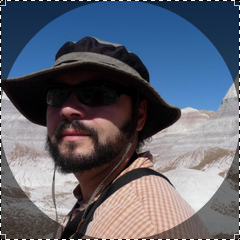 Shane de Solla has worked for Environment & Climate Change Canada’s for the last 20 years, and currently is an ecotoxicologist with Ecotoxicology and Wildlife Health Division. His current work focuses on characterizing POPs in free ranging wildlife, running laboratory and field studies toelucidate the toxicity of current use chemicals to aquatic animals, assessing spatial and temporal trends of chemicals of current or recent use in wildlife across Canada, and assessment of wildlife or contaminants in Great lakes Areas of Concern.
Shane de Solla has worked for Environment & Climate Change Canada’s for the last 20 years, and currently is an ecotoxicologist with Ecotoxicology and Wildlife Health Division. His current work focuses on characterizing POPs in free ranging wildlife, running laboratory and field studies toelucidate the toxicity of current use chemicals to aquatic animals, assessing spatial and temporal trends of chemicals of current or recent use in wildlife across Canada, and assessment of wildlife or contaminants in Great lakes Areas of Concern.
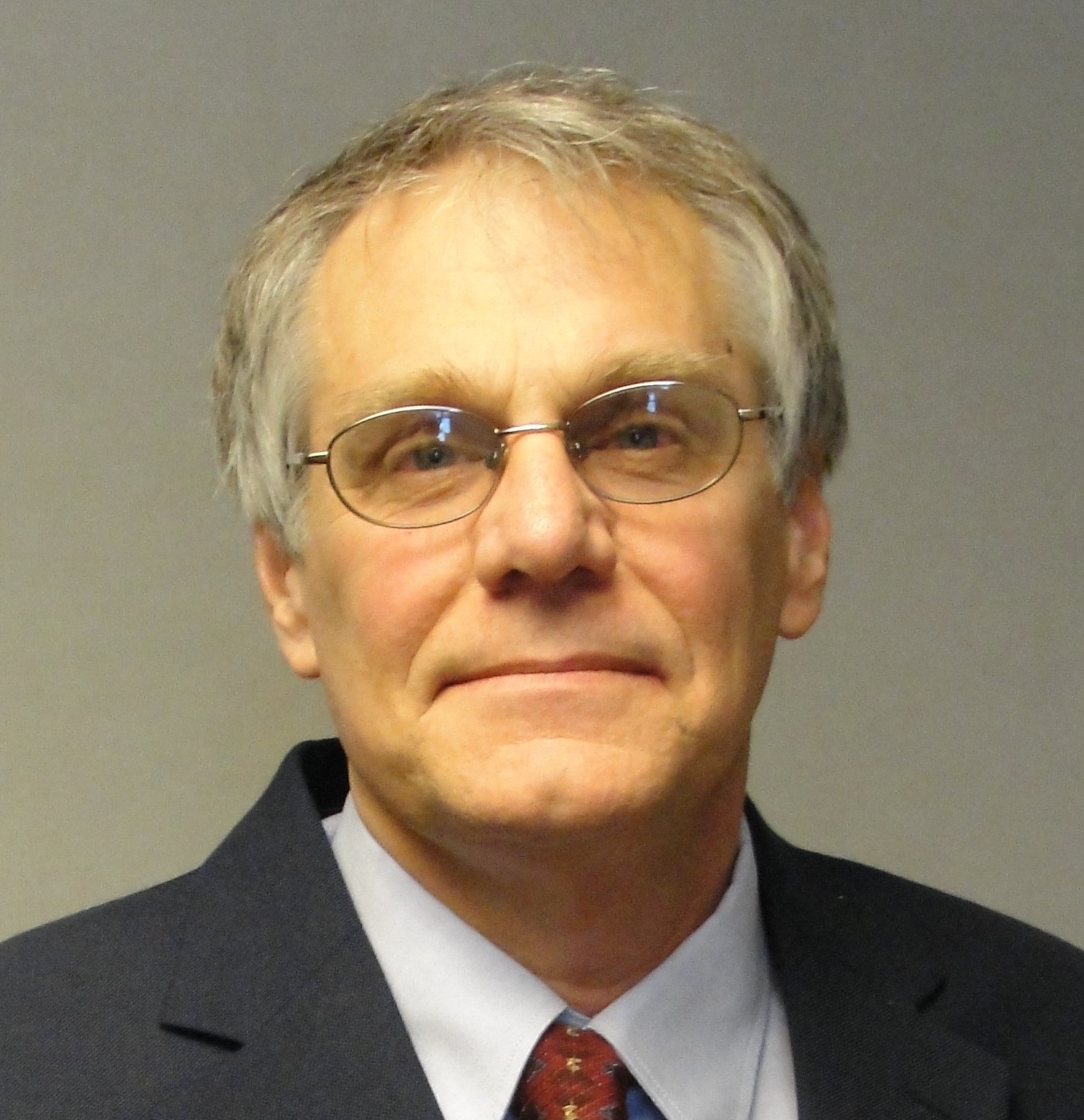 Dr. John Newsted holds a PhD from the Michigan State University. He has over 25years of experience in aquatic ecology, aquatic, and terrestrial ecotoxicology, and ecological risk assessment. He has studied the effects of endocrine disruptors at the molecular, biochemical, organismal and population level in aquatic species. Currently his work has centered on emerging chemicals of concern, specifically per- and polyfluoroalkyl substances (PFAS). Much of this work has been focused understanding the fate, transport and ecotoxicological effects of perfluoroalkylacids (e.g., PFBS, PFOS, PFBA, PFOS, PFNA) in aquatic and terrestrial ecosystems. Dr. Newsted has presented at both national and international conferences and has published over 90 peer reviewed articles and numerous reports and abstracts.
Dr. John Newsted holds a PhD from the Michigan State University. He has over 25years of experience in aquatic ecology, aquatic, and terrestrial ecotoxicology, and ecological risk assessment. He has studied the effects of endocrine disruptors at the molecular, biochemical, organismal and population level in aquatic species. Currently his work has centered on emerging chemicals of concern, specifically per- and polyfluoroalkyl substances (PFAS). Much of this work has been focused understanding the fate, transport and ecotoxicological effects of perfluoroalkylacids (e.g., PFBS, PFOS, PFBA, PFOS, PFNA) in aquatic and terrestrial ecosystems. Dr. Newsted has presented at both national and international conferences and has published over 90 peer reviewed articles and numerous reports and abstracts.
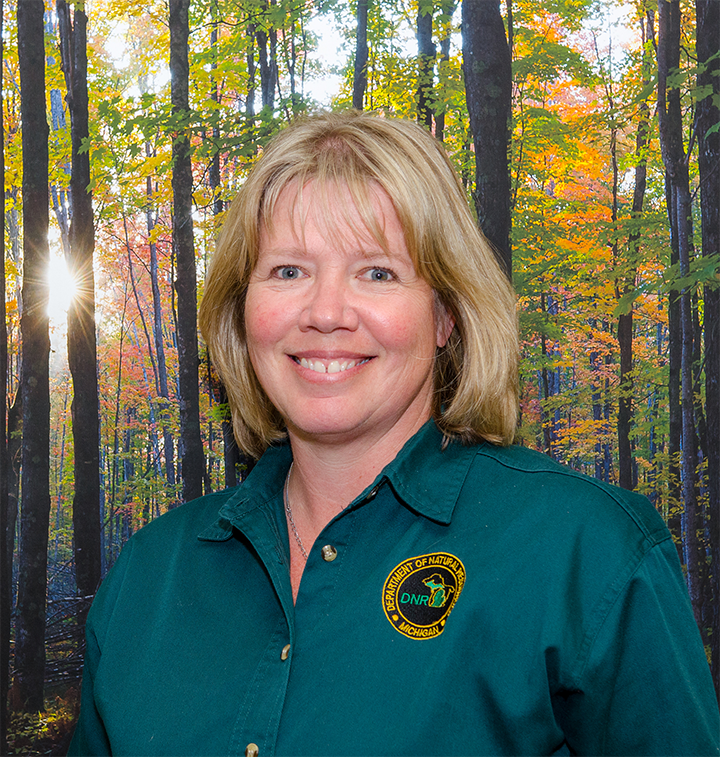 Dr. Newcomb serves as a Senior Water Policy Advisor for the Michigan Department of Natural Resources (MDNR). In this role, she leads statewide issues for the Department such as preventing Asian carp from entering the Great Lakes, coordination of PFAS issues for fish, wildlife, and facilities, and cross departmental issues related to the Great Lakes. She recently led implementation of a $5 million invasive species program for the State of Michigan and a $1 million innovation challenge on invasive carp. Dr. Newcomb received her B.S. and Ph.D. in Fisheries and Wildlife from Michigan State University and her M.S. from West Virginia University in Forestry. Prior to her current appointment she served as the MDNR Fisheries Division Research Program Manager. Before she began service with the MDNR, Dr. Newcomb was an Assistant Professor at Virginia Polytechnic Institute and State University with a research program focused on management of regulated rivers. Dr. Newcomb is adjunct Associate Professor at Michigan State University, a former member of the U.S. Army Corps of Engineers National Science Advisory Board and has enjoyed serving on three National Academy of Science Panels regarding the Klamath River Basin and the Columbia River.
Dr. Newcomb serves as a Senior Water Policy Advisor for the Michigan Department of Natural Resources (MDNR). In this role, she leads statewide issues for the Department such as preventing Asian carp from entering the Great Lakes, coordination of PFAS issues for fish, wildlife, and facilities, and cross departmental issues related to the Great Lakes. She recently led implementation of a $5 million invasive species program for the State of Michigan and a $1 million innovation challenge on invasive carp. Dr. Newcomb received her B.S. and Ph.D. in Fisheries and Wildlife from Michigan State University and her M.S. from West Virginia University in Forestry. Prior to her current appointment she served as the MDNR Fisheries Division Research Program Manager. Before she began service with the MDNR, Dr. Newcomb was an Assistant Professor at Virginia Polytechnic Institute and State University with a research program focused on management of regulated rivers. Dr. Newcomb is adjunct Associate Professor at Michigan State University, a former member of the U.S. Army Corps of Engineers National Science Advisory Board and has enjoyed serving on three National Academy of Science Panels regarding the Klamath River Basin and the Columbia River.
February 15th 2022 Part 2 of 3
The Michigan State University Center for PFAS Research and MSU’s Canada Connect invite you to the second webinar of a speaker series on the history, science, impact, and challenge of PFAS in the Canadian and US context. Using a One Health framework, each webinar will include speakers from both Canada and the United States.
Please click here to view the recorded webinar
The webinar will be February 15th from 12:00pm – 1:30pm. Please register to join.
Registration Link:
https://msu.zoom.us/webinar/register/WN_OHCUfS6AQoWPJcRF4kLxjg
Speakers:
Élyse Caron-Beaudoin is an Assistant Professor in environmental health at the University of Toronto – Scarborough. Her research focuses on the development of transdisciplinary community-based research projects to assess the impacts of anthropogenic pressures on health by combining information from multiple levels of biological organization. Élyse holds a PhD in biology with a specialization in toxicology from the INRS – Armand-Frappier Institute in Laval, Quebec. From 2018 to 2020, she was a CIHR-funded postdoctoral fellow at the Université de Montreal. She is implicated in several research projects on environmental and Indigenous health, including in oil and gas regions and in the Canadian Arctic.
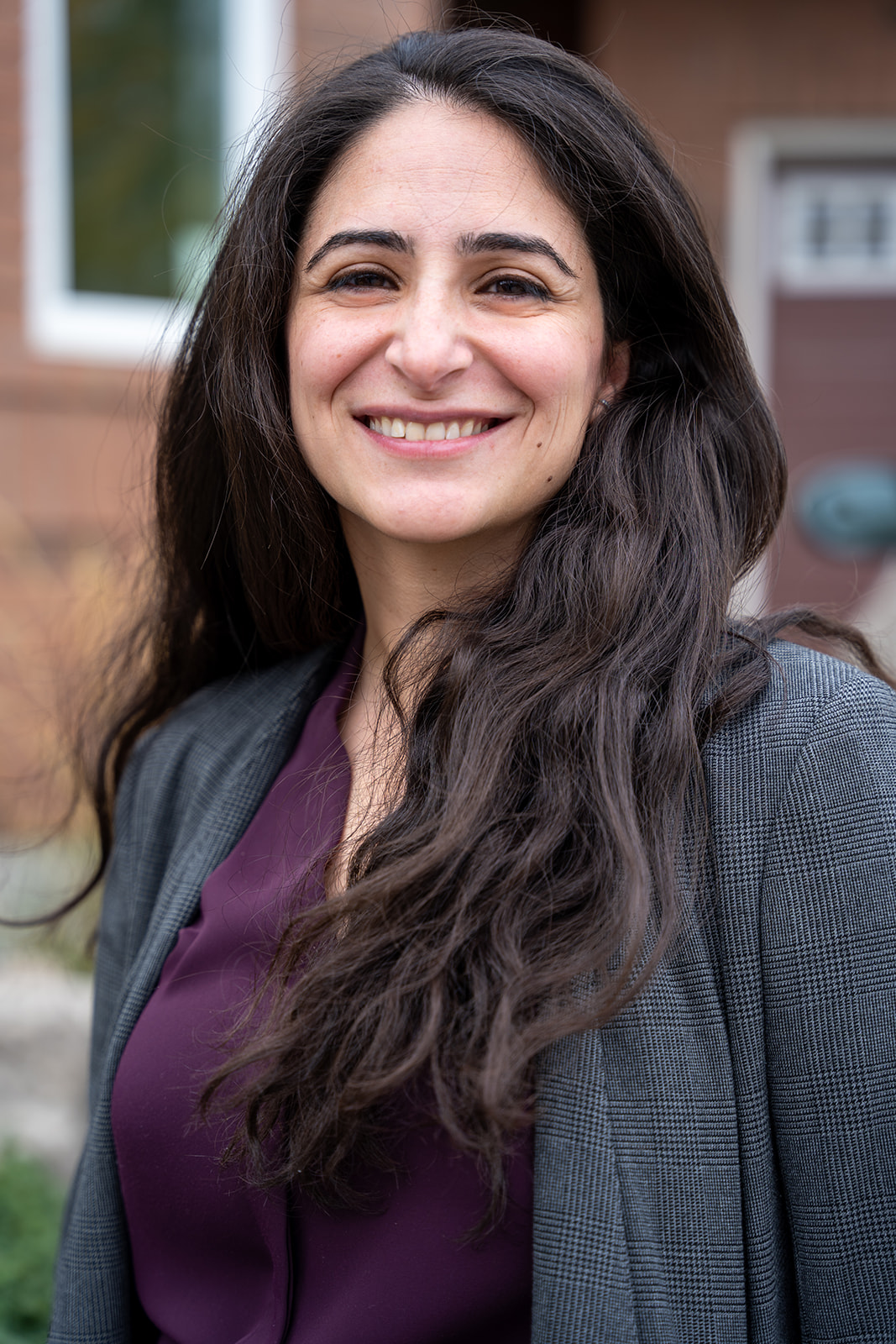 Dr. Amira Aker is a Postdoctoral Fellow at the Université Laval and the Centre de recherche du CHU de Québec. She is an environmental epidemiologist and her research centers around protecting systematically and structurally excluded populations from contaminants of emerging concern, with a particular interest in Arctic communities. She is currently studying the exposure sources of perfluoroalkyl substances and their health effects on cardiometabolic outcomes and immunological function in Inuit communities in Nunavik. Dr. Aker received her PhD in Environmental Health Sciences from the University of Michigan, Ann Arbor, and completed a postdoctoral fellowship at the University of Toronto Scarborough focused on chronic disease.
Dr. Amira Aker is a Postdoctoral Fellow at the Université Laval and the Centre de recherche du CHU de Québec. She is an environmental epidemiologist and her research centers around protecting systematically and structurally excluded populations from contaminants of emerging concern, with a particular interest in Arctic communities. She is currently studying the exposure sources of perfluoroalkyl substances and their health effects on cardiometabolic outcomes and immunological function in Inuit communities in Nunavik. Dr. Aker received her PhD in Environmental Health Sciences from the University of Michigan, Ann Arbor, and completed a postdoctoral fellowship at the University of Toronto Scarborough focused on chronic disease.
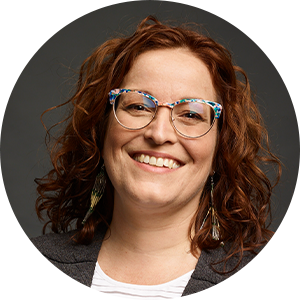 Mélanie Lemire is an associate professor in the Department of Social and Preventive Medecine at Laval University and researcher at the Population Health and Optimal Health Practices axis at the CHU de Québec-Université Laval Research Centre and the Institute for Integrative and Systems Biology (IBIS). She is the Canadian designated expert for the Human Health Assessment Group of the Arctic Monitoring and Assessment Program (HHAG-AMAP).Her projects are transdisciplinary, intersectoral and participatory, and focus on the study of environmental contaminants, ocean change, and nutrition related to the health of Indigenous and coastal populations. Her findings are used to inform decisions, decision making-tools, programs and policies at local, federal and international levels.
Mélanie Lemire is an associate professor in the Department of Social and Preventive Medecine at Laval University and researcher at the Population Health and Optimal Health Practices axis at the CHU de Québec-Université Laval Research Centre and the Institute for Integrative and Systems Biology (IBIS). She is the Canadian designated expert for the Human Health Assessment Group of the Arctic Monitoring and Assessment Program (HHAG-AMAP).Her projects are transdisciplinary, intersectoral and participatory, and focus on the study of environmental contaminants, ocean change, and nutrition related to the health of Indigenous and coastal populations. Her findings are used to inform decisions, decision making-tools, programs and policies at local, federal and international levels.
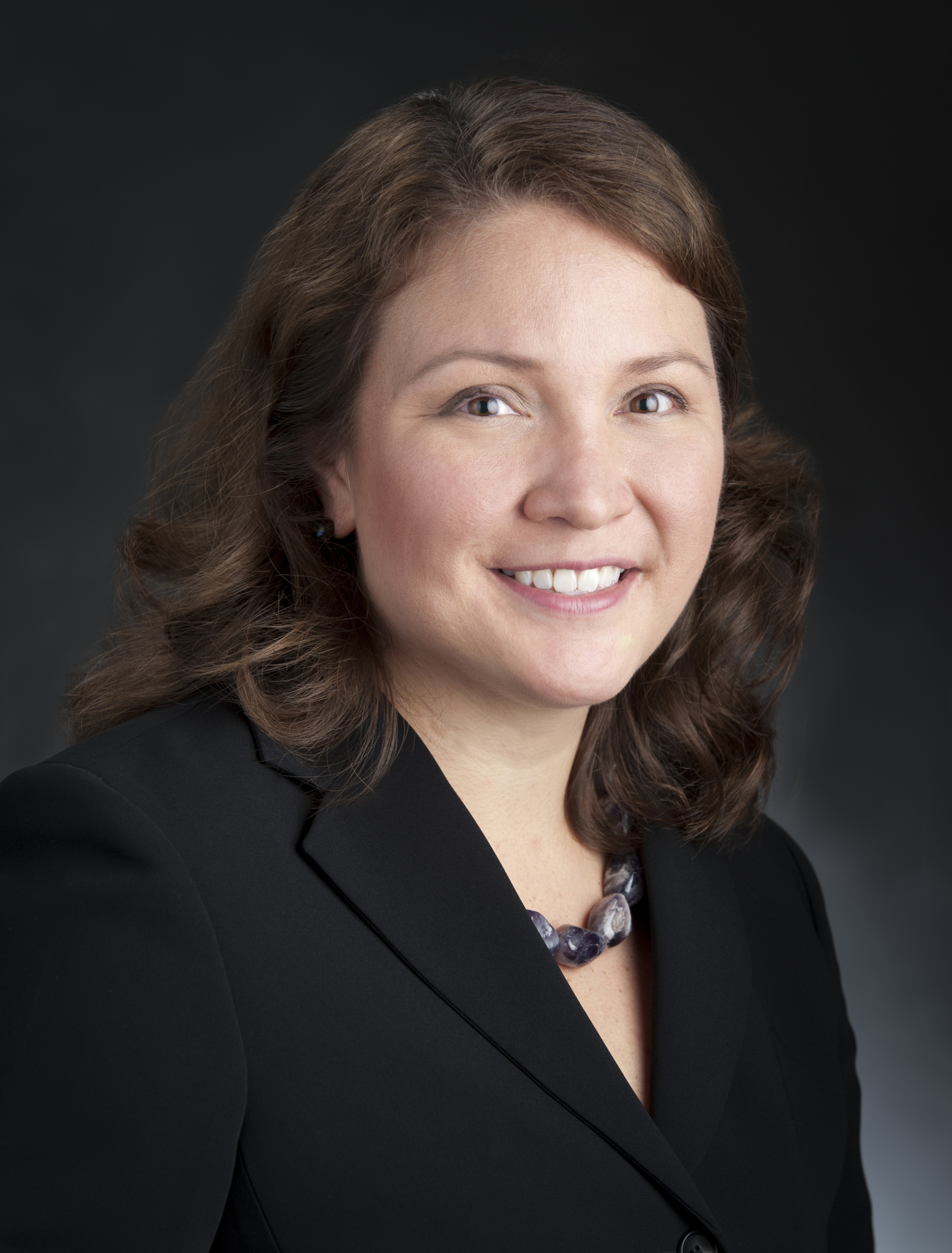 Wenona Singel is an Associate Professor of Law and Associate Director of the Indigenous Law & Policy Center at Michigan State University College of Law in East Lansing, Michigan. She recently completed a two-year leave of absence from MSU to fulfill an appointment as Deputy Legal Counsel and Advisor for Tribal Affairs for Governor Gretchen Whitmer. While working for theGovernor’s Office, Wenona advised the Governor on all aspects of tribal-state relations, and she was responsible for advising the Governor on issues related to the Flint water crisis, the environment, natural resources, and gaming. At MSU, Wenona teaches and publishes in the areas of Property, Federal Indian Law, and Natural Resources Law. She is a member of the American Law Institute and an Associate Reporter for the Restatement of the Law of American Indians. She also received an appointment by President Barack Obama to the Board of the Saint Lawrence Seaway Development Corporation, a position she held for five years. She received an A.B. from Harvard College and a J.D. from Harvard Law School. Wenona is a citizen of the Little Traverse Bay Bands of Odawa Indians, and she is married to Matthew Fletcher, with whom she has two sons named Owen and Emmett.
Wenona Singel is an Associate Professor of Law and Associate Director of the Indigenous Law & Policy Center at Michigan State University College of Law in East Lansing, Michigan. She recently completed a two-year leave of absence from MSU to fulfill an appointment as Deputy Legal Counsel and Advisor for Tribal Affairs for Governor Gretchen Whitmer. While working for theGovernor’s Office, Wenona advised the Governor on all aspects of tribal-state relations, and she was responsible for advising the Governor on issues related to the Flint water crisis, the environment, natural resources, and gaming. At MSU, Wenona teaches and publishes in the areas of Property, Federal Indian Law, and Natural Resources Law. She is a member of the American Law Institute and an Associate Reporter for the Restatement of the Law of American Indians. She also received an appointment by President Barack Obama to the Board of the Saint Lawrence Seaway Development Corporation, a position she held for five years. She received an A.B. from Harvard College and a J.D. from Harvard Law School. Wenona is a citizen of the Little Traverse Bay Bands of Odawa Indians, and she is married to Matthew Fletcher, with whom she has two sons named Owen and Emmett.
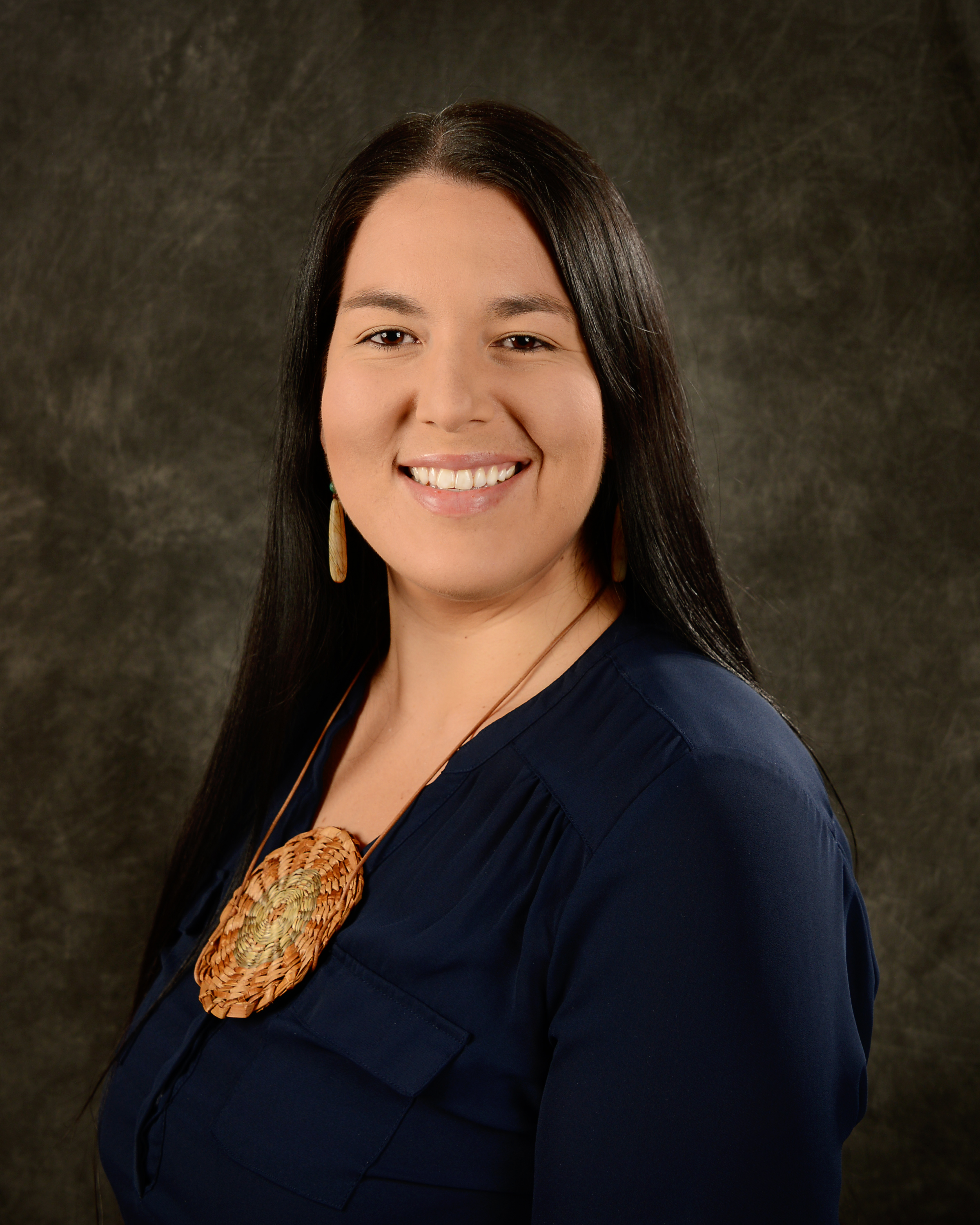 Whitney Gravelle is a citizen of the Bay Mills Indian Community Gnoozhekaaning (Place of the Pike) in the Upper Peninsula of Michigan. After graduating from Michigan State University College of Law in 2016 with a certificate from the Indigenous Law Program, Whitney worked for the Department of Justice with the Environment and Natural Resource Division in the Indian Resource Section, where she worked on cases related to the scope of tribal lands and jurisdiction, treaty rights, and the protection of lands held in trust for tribes and individual Indian lands. Whitney has also served as Chief Judge of Bay Mills Tribal Court where she worked on transforming restorative justice within her community by providing truth and healing to her Tribe through modern cultural Court practices, and again as In-House Counsel and attorney for Bay Mills Indian Community where she worked on a variety of legal issues that impact Indian Country, including the Indian Child Welfare Act. Currently, Whitney serves as President of the Bay Mills Indian Community, and serves on the Michigan Women’s Commission and the Michigan Advisory Council on Environmental Justice.
Whitney Gravelle is a citizen of the Bay Mills Indian Community Gnoozhekaaning (Place of the Pike) in the Upper Peninsula of Michigan. After graduating from Michigan State University College of Law in 2016 with a certificate from the Indigenous Law Program, Whitney worked for the Department of Justice with the Environment and Natural Resource Division in the Indian Resource Section, where she worked on cases related to the scope of tribal lands and jurisdiction, treaty rights, and the protection of lands held in trust for tribes and individual Indian lands. Whitney has also served as Chief Judge of Bay Mills Tribal Court where she worked on transforming restorative justice within her community by providing truth and healing to her Tribe through modern cultural Court practices, and again as In-House Counsel and attorney for Bay Mills Indian Community where she worked on a variety of legal issues that impact Indian Country, including the Indian Child Welfare Act. Currently, Whitney serves as President of the Bay Mills Indian Community, and serves on the Michigan Women’s Commission and the Michigan Advisory Council on Environmental Justice.
January 18th 2022 Part 1 of 3
Please click here to view the recorded webinar.
The Michigan State University Center for PFAS Research and MSU’s Canada Connect invite you to the first webinar of a speaker series on the history, science, impact, and challenge of PFAS in the Canadian and US context. Using a One Health framework, each webinar will include speakers from both Canada and the United States.
The first webinar will be January 18th from 12:00pm – 1:30pm. Please register to join.
Registration Link: https://msu.zoom.us/webinar/register/WN_ahVeLt1bTyWvvrSYA-roDg
 Dr. Linda Birnbaum: The Challenge of PFAS in the United States
Dr. Linda Birnbaum: The Challenge of PFAS in the United StatesLinda S. Birnbaum, Ph.D., D.A.B.T., A.T.S. is the former Director of the National Institute of Environmental Health Sciences (NIEHS) of the National Institutes of Health, and the National Toxicology Program (NTP). After retirement, she was granted scientist emeritus status and still maintains a laboratory. As a board-certified toxicologist, Birnbaum served as a federal scientist for 40 years. Prior to her appointment as NIEHS and NTP Director in 2009, she spent 19 years at the U.S. Environmental Protection Agency (EPA), where she directed the largest division focusing on environmental health research.
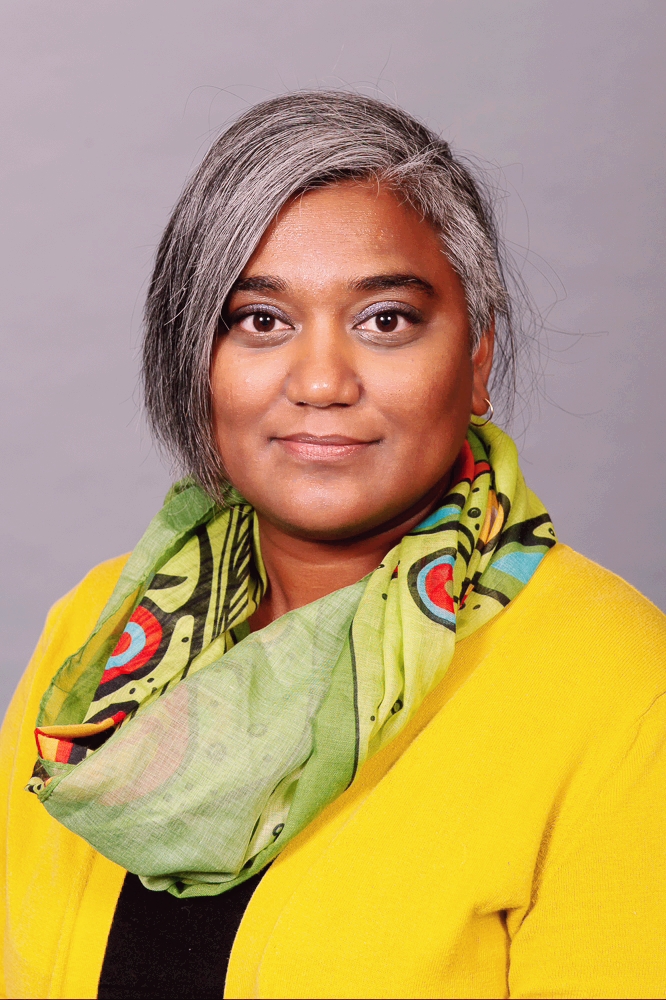 Dr. Amila O. De Silva: PFAS in Canada: Great Lakes to the Arctic
Dr. Amila O. De Silva: PFAS in Canada: Great Lakes to the ArcticDr. Amila De Silva (she/her) is a researcher with the Canadian government. She has developed a research program on contaminants in natural ecosystems including the Great Lakes and Arctic. Amila is an expert in environmental chemistry and uses advanced analytical methods to discover, identify and measure emerging contaminants. Amila’s research has contributed to international and federal decision-making on substances that are persistent, bioaccumulative, toxic and undergo long range transport. Amila has been studying PFAS since 2002, beginning with her Ph.D. studies at the University of Toronto. Amila is a first generation Canadian and resides in Burlington, ON.

If you weren't able to attend this webinar, click here to watch the recorded video.
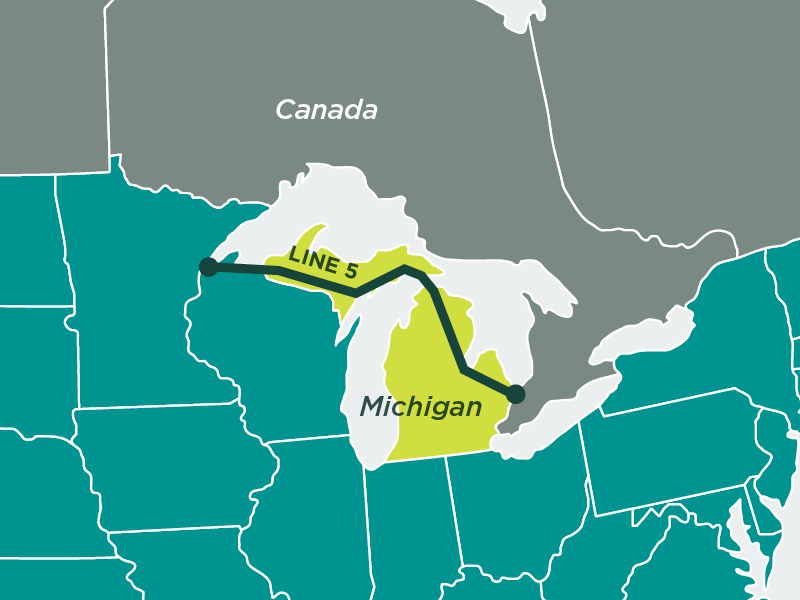
Line 5 is a pipeline system carrying both oil and propane from Canada across Michigan's upper and lower peninsulas to Sarnia, Ontario. The pipeline crosses the Straits of Mackinac, leading to concerns about a potential oil spill from the 65-year-old pipeline. Shutting down the pipeline could have significant economic and environmental impacts in Canada and parts of the United States.
This international panel brings together diverse voices to address the concerns on both sides of the border related to Line 5, as well as a potential diplomatic resolution as both countries commit to green-energy strategies.
The event will be held virtually via Zoom. Registration is required.
Welcome
Moderator
Panelists
Closing Remarks
2017 Speaker Presentations
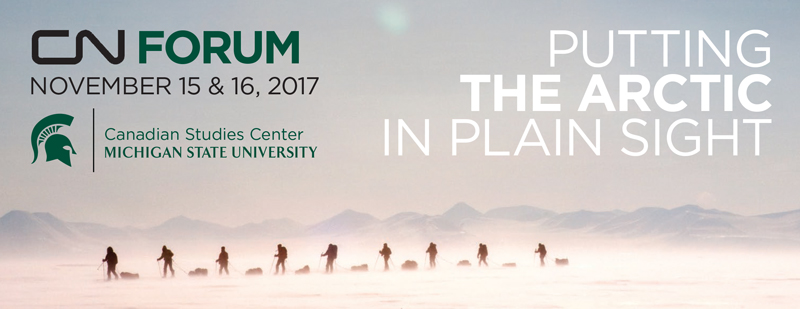
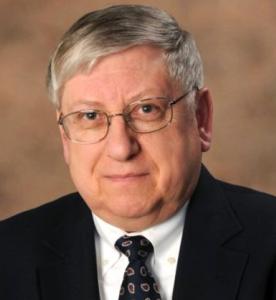
Thinking Ahead: Regional Needs for Meeting Global Demand
 Recent developments including plans for the "Gordie Howe" Bridge and the proposed Trans Pacific Partnership puts the Great Lakes Region in the center of exponential growth in trade and related economic development. With the help of leaders in the transportation field, this forum calls on area stakeholders to envision and address the needs of an accelerated trade environment, while considering the role of complementary assets held in the U.S. Midwest and Canada's Eastern Provincial Region. Cross border collaboration must be efficient and fast-tracked to maintain binational economic competitiveness.
Recent developments including plans for the "Gordie Howe" Bridge and the proposed Trans Pacific Partnership puts the Great Lakes Region in the center of exponential growth in trade and related economic development. With the help of leaders in the transportation field, this forum calls on area stakeholders to envision and address the needs of an accelerated trade environment, while considering the role of complementary assets held in the U.S. Midwest and Canada's Eastern Provincial Region. Cross border collaboration must be efficient and fast-tracked to maintain binational economic competitiveness.